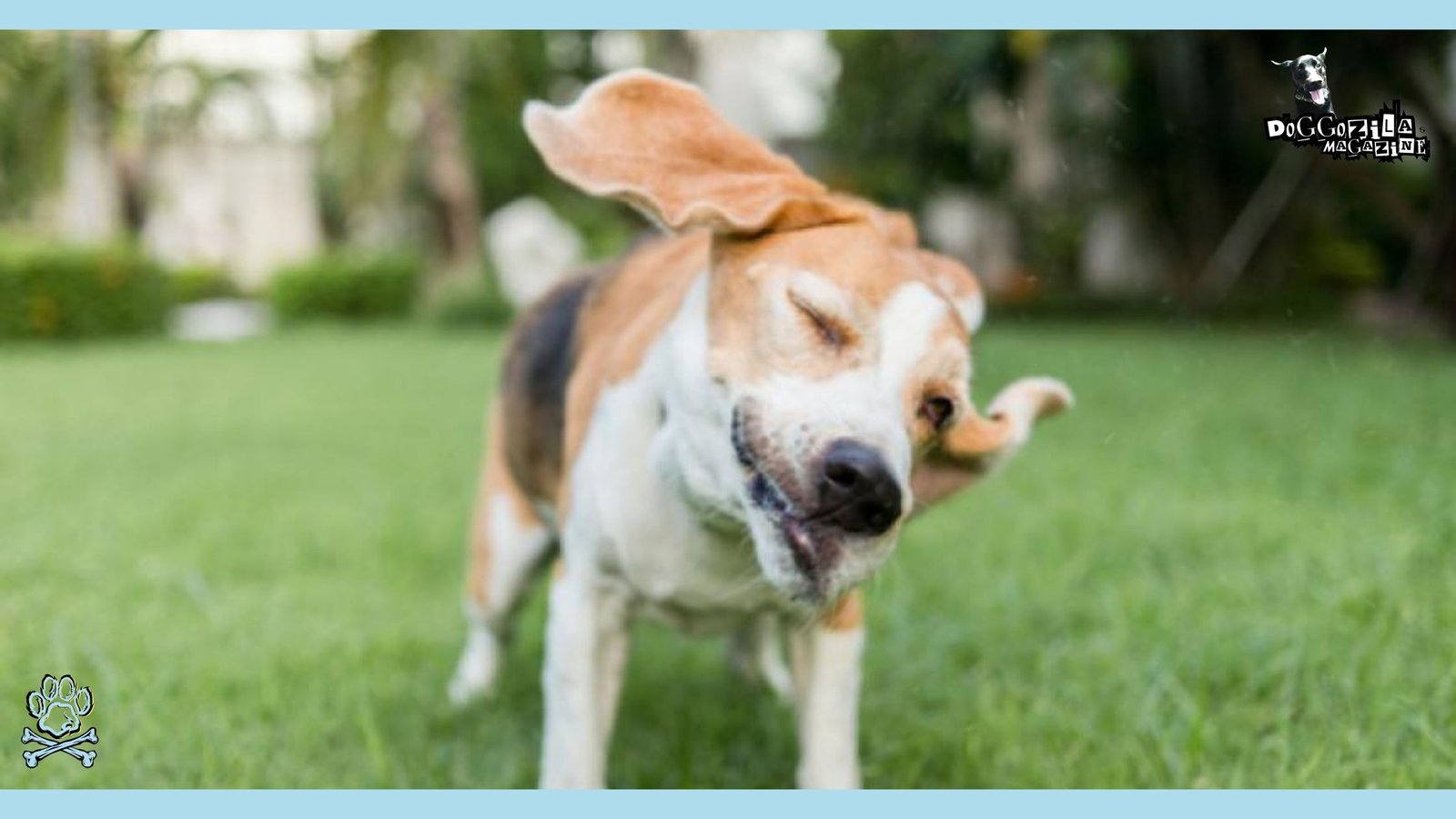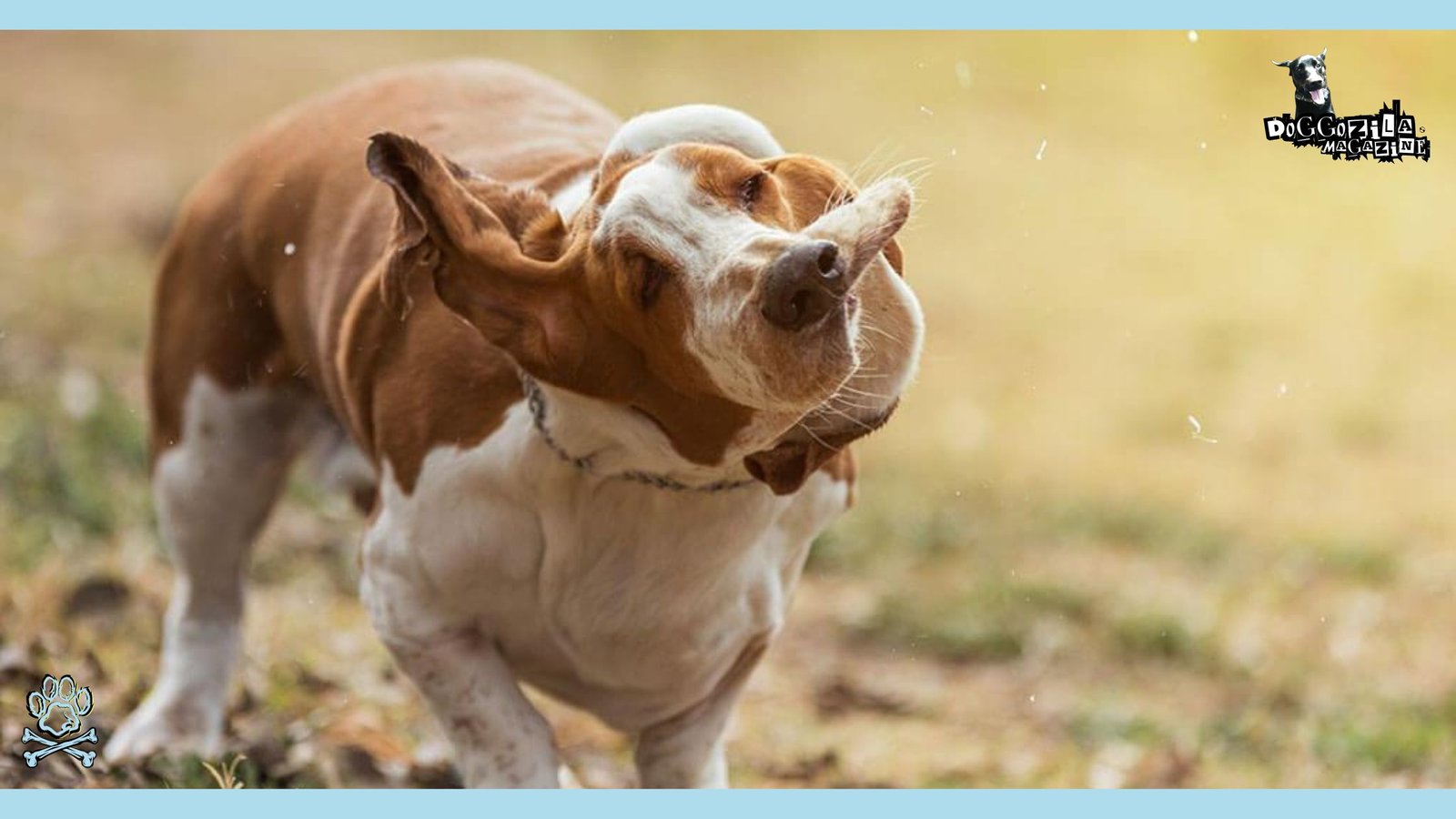
UNRAVELING THE MYSTERY: DOG SHAKING
Do you ever wonder why your furry companion shakes, leaving you puzzled and concerned? Understanding the reasons behind dog shaking behavior is crucial for their well-being. In our expert guide, we unravel the mystery of why dogs shake, delving into a comprehensive exploration supported by insightful veterinary perspectives.
Expert Vet Insights & Care Tips Revealed!
From common triggers like cold, excitement, anxiety, to potential health issues such as seizures, ear problems, and poisoning, we cover it all. Our goal is to equip you with the knowledge to differentiate between harmless shaking and concerning symptoms, empowering you to provide expert care for your beloved pet.
Join us as we navigate the intricate world of dog shaking, offering practical tips, expert insights, and actionable advice to enhance your understanding and proactive approach in nurturing a happy, shake-free life for your canine companion.
Understanding Why Do Dogs Shake
Have you ever wondered why your furry companion shakes? It’s a common question that many dog lovers ask. The answer isn’t always simple, as there can be a number of different reasons behind your dog’s shaking. From excitement to fear, and even underlying health issues, it’s important to understand the potential causes of your dog’s shaking.
That’s why a thorough examination by a veterinarian is crucial. In this comprehensive guide, we’ll dive into the world of dog shaking, exploring the most common reasons and what they could mean for your furry friend.
We’ll also provide expert insights from veterinarians on when it’s time to seek professional help. So, whether you have a golden retriever, a small terrier breed, or any other beloved canine companion, join us as we uncover the truth behind those shakes and tremors.
🔑 Key Points: Dog shaking can have various causes, from environmental factors to health issues, and understanding these reasons is crucial for providing the best care for your furry friend.
Common Causes Of Dog Shaking Explained
One of the most common reasons for dog shaking is simply because they’re cold. Just like humans, dogs can shiver when they’re feeling chilly. This is especially true for smaller breeds or dogs with shorter coats. If you notice your dog shaking and it’s cold outside, offering them a warm blanket or sweater can help.
Another frequent cause of dog shaking is excitement. Have you ever seen your dog’s tail wagging furiously and their whole body trembling when you come home or they see a favorite toy? That’s a clear sign of a happy, excited pup! However, shaking can also be a sign of anxiety or stress. If your dog is shaking in a situation that seems stressful to them, such as during a thunderstorm or fireworks, it’s important to provide comfort and reassurance.
In some cases, shaking can indicate a more serious issue, such as seizures. Seizures can cause uncontrollable shaking and tremors, and if you suspect your dog is having a seizure, it’s crucial to seek veterinary care immediately. Other health issues that can cause shaking include ear infections, poisoning, pain, canine distemper, and muscle atrophy. These conditions require prompt attention from a veterinarian to properly diagnose and treat.
🔑 Key Points: Shaking in dogs can be caused by a variety of factors, ranging from harmless reasons like cold or excitement to more serious health concerns that require veterinary intervention.

Specific Health Issues Leading to Dog Shaking
Ear problems are a common cause of head shaking in dogs. If your canine companion is frequently shaking their head or scratching at their ears, it could be a sign of an ear infection. These infections can be painful and uncomfortable, leading to excessive shaking.
Low blood sugar, or hypoglycemia, can also cause shaking in dogs, particularly in smaller breeds. This occurs when the dog’s blood sugar levels drop too low, and it can be a serious issue if not addressed promptly. Generalized Tremor Syndrome (GTS), also known as “white shaker dog syndrome,” is a condition that primarily affects small, white dogs. It’s characterized by full-body tremors and can be managed with medication and supportive care.
Infectious diseases like canine distemper can also lead to shaking. This viral illness affects a dog’s nervous system and can cause tremors, seizures, and other neurological symptoms. Vaccination is key in preventing distemper. Chronic disc disease, which is more common in certain breeds like basset hounds and dachshunds, can compress the spinal cord and lead to shaking or tremors in the affected limbs.
🔑 Key Points: Specific health issues like ear infections, hypoglycemia, GTS, distemper, and spinal problems can manifest as shaking in dogs, highlighting the importance of regular check-ups and prompt veterinary care.
Environmental and Emotional Triggers
Apart from physical health issues, environmental and emotional factors can also trigger shaking in dogs. Loud noises, unfamiliar situations, or even a negative experience at the vet or groomer can cause stress and anxiety, leading to trembling.
In these cases, the dog’s shaking is often accompanied by other signs of distress, such as panting, pacing, or hiding. Surges of adrenaline can contribute to the shaking response. Identifying and addressing the underlying cause of stress is crucial in helping your dog feel more at ease and reduce shaking episodes related to environmental triggers.
🔑 Key Points: Stressful situations and negative experiences can cause shaking in dogs, and identifying and managing these environmental triggers is key to promoting a calm, shake-free demeanor.

HOW TO DISTINGUISH BETWEEN HARMLESS AND CONCERNING DOG SHAKING
So, how can you tell if your dog’s shaking is a normal response or a sign of something more serious? One key factor to consider is the frequency and duration of the shaking. Occasional, short-lived shaking, such as when your dog is excited or chilly, is generally harmless. However, if the shaking persists or occurs frequently, it’s worth investigating further.
Tremors In Dogs
Age-related tremors of unknown cause can also occur in older dogs. While these tremors are rarely a cause for concern, it’s still important to have your senior dog evaluated by a veterinarian to rule out any underlying health issues.
Another red flag is if the shaking is accompanied by other symptoms, such as limping, vomiting, diarrhea, or changes in appetite or behavior. These additional signs could indicate a more serious issue that requires prompt veterinary attention.
If you’re ever unsure about the cause of your dog’s shaking, it’s always best to err on the side of caution and schedule a thorough physical examination with your veterinarian. They can help determine if the shaking is harmless or if it warrants further investigation and treatment.
🔑 Key Points: Distinguishing between harmless and concerning shaking in dogs involves assessing the frequency, duration, and presence of accompanying symptoms, with veterinary guidance being crucial in determining the underlying cause.
Expert Care Tips for Dogs Who Shake
If your dog is prone to shaking, there are several care tips that can help keep them comfortable and healthy. For dogs who shake due to cold, offering warmth through blankets, sweaters, or a cozy bed can provide relief.
When shaking is caused by anxiety or stress, creating a calm environment and providing positive reinforcement can be beneficial. This may include using pheromone diffusers, playing soothing music, or offering special treats during stressful situations.
For dogs with underlying health issues, working closely with your veterinarian is essential. They may recommend medications, dietary changes, or other treatments to manage conditions like ear infections, calcium imbalances, or neurological disorders.
🔑 Key Points: Providing warmth, creating a calm environment, and working closely with your veterinarian are essential care strategies for dogs who shake due to various underlying causes.

BEHAVIORAL REASONS BEHIND DOG SHAKING
Not all shaking in dogs is related to physical health issues. Sometimes, shaking can be a behavioral response to their environment or emotional state.
Learn To Understand Your Dog Body Language
For example, a dog may shake off after a bath or a swim, which is a natural way for them to dry their coat and regulate their body temperature. Shaking can also be a sign of submission or appeasement in dogs, particularly when they’re interacting with other dogs or people they perceive as dominant. Understanding the context and body language surrounding your dog’s shaking can provide valuable insights into the underlying cause of the behavior.
🔑 Key Points: Shaking in dogs can also have behavioral origins, such as drying off after swimming or displaying submissive body language, and recognizing these contexts is important for a comprehensive understanding of the behavior.
Understanding Your Dog’s Body Language and What It Tells Us
A dog’s body language can speak volumes about their emotional state and the reasons behind their shaking. A full-body shake, where the dog’s entire body trembles, is often a sign of excitement, stress, or anxiety.
On the other hand, localized shaking, such as a trembling leg or paw, could indicate pain or discomfort in that specific area. This type of shaking may be accompanied by limping or a reluctance to put weight on the affected limb. The speed and intensity of the shaking can also provide clues. A slow, gentle tremor may be less concerning than rapid, violent shaking.
Additionally, the context in which the shaking occurs is crucial. A wet dog shaking to dry off will look different than a dog trembling in fear during a thunderstorm. By observing your dog’s overall body language and the circumstances surrounding the shaking, you can gain a better understanding of what they’re trying to communicate.
🔑 Key Points: Interpreting a dog’s body language, including the location, intensity, and context of their shaking, can provide valuable insights into their emotional state and the underlying reasons for the behavior.

When to Seek Immediate Veterinary Attention
While some causes of shaking in dogs are relatively harmless, there are certain situations where seeking immediate veterinary care is crucial. If your dog is experiencing seizures, which are characterized by uncontrollable shaking and loss of consciousness, it’s a medical emergency that requires prompt attention.
Likewise, if you suspect your dog has ingested a toxic substance, such as chocolate or a cigarette butt, and is shaking as a result, it’s essential to contact your veterinarian or a pet poison control hotline immediately. Tremors of unknown cause, muscle atrophy, or persistent shaking also warrant a visit to your primary care veterinarian for evaluation and treatment.
🔑 Key Points: Seizures, poisoning, tremors of unknown cause, and muscle atrophy are serious conditions that require immediate veterinary intervention to ensure the best possible outcome for your shaking dog.
Identifying Severe Conditions: From Ear Infections to Poisoning
In addition to the aforementioned severe conditions, there are other issues that can cause concerning shaking in dogs. Ear infections, which are common in floppy-eared breeds like cocker spaniels and basset hounds, can lead to head shaking and scratching at the ears.
If left untreated, ear infections can cause significant pain and even lead to hearing loss. Whole-body tremors can also be a sign of more serious neurological conditions, such as meningitis or brain tumors. Poisoning from substances like chocolate, grapes, or xylitol can cause shaking, seizures, and other life-threatening symptoms. Electrolyte abnormalities, such as calcium imbalances, can also manifest as tremors or shaking.
In any case, if your dog’s shaking seems severe, prolonged, or is accompanied by other alarming symptoms, it’s crucial to seek veterinary care promptly. Your veterinarian can perform diagnostic tests and provide appropriate treatment to address the underlying cause and ensure your dog’s well-being.
🔑 Key Points: Severe conditions like ear infections, neurological disorders, poisoning, and electrolyte imbalances can cause concerning shaking in dogs and require prompt veterinary attention for proper diagnosis and treatment.

NURTURING YOUR FURRY COMPANION: PREVENTIVE MEASURES AND SOLUTIONS
Preventing shaking in dogs starts with providing them with a healthy, nurturing environment. Regular check-ups with your veterinarian can help identify and manage breed-related conditions of the nervous system or other chronic issues that may contribute to shaking.
Dogs Can Shake From Underlying Health Issue
Maintaining a balanced diet, providing adequate exercise, and minimizing exposure to stressful situations can also go a long way in promoting your dog’s overall well-being. If your dog’s shaking persists or seems to be related to an underlying health issue, don’t hesitate to seek expert insight from your veterinarian. They can provide personalized recommendations and a friendly nudge in the right direction.
🔑 Key Points: Preventive measures, such as regular check-ups, a balanced lifestyle, and minimizing stress, can help reduce the likelihood of shaking in dogs, and seeking expert veterinary guidance is crucial for addressing persistent or concerning cases.
Tips for a Healthy Dog Lifestyle: Ensuring a Happy, Shake-Free Life
Ensuring a happy, shake-free life for your furry companion involves a combination of proactive care and attention to their individual needs. One key aspect is regular exercise, which not only keeps your dog physically fit but also helps alleviate stress and anxiety that can contribute to shaking.
Maintaining a consistent routine, including regular meal times and potty breaks, can provide a sense of security and stability for your dog. Socialization and positive reinforcement training can also help build confidence and reduce fear-related shaking. For older dogs, accommodating age-related changes and providing a comfortable, supportive environment is essential. This may include providing orthopedic bedding, using ramps or stairs for easier access, and adapting exercise routines to their changing abilities.
Regular grooming not only keeps your dog’s coat healthy but also allows you to check for any lumps, bumps, or signs of discomfort that could be related to shaking. By taking a proactive approach to your dog’s overall health and well-being, you can help minimize the likelihood of concerning shaking episodes and ensure a happy, vibrant life for your furry friend.
🔑 Key Points: A healthy lifestyle, including regular exercise, a consistent routine, socialization, and accommodating age-related needs, can help prevent shaking in dogs and promote their overall well-being.

ADDITIONAL CONSIDERATIONS FOR DOG SHAKING: AGE AND BREED SPECIFICS
When it comes to dog shaking, age and breed can play significant roles. As dogs enter their senior years, they may be more prone to age-related tremors or shaking. This can be a normal part of the aging process, but it’s important to have your older dog evaluated by a veterinarian to rule out any underlying health issues.
Dog Shaking Due To Genetic Predispositions
Certain breeds are also more susceptible to shaking or tremors due to genetic predispositions. For example, small terrier breeds like the West Highland White Terrier or the Yorkshire Terrier are more prone to generalized tremor syndrome (GTS).
Breeds with long, floppy ears, such as cocker spaniels and basset hounds, are more susceptible to ear infections, which can cause head shaking and discomfort. Golden Retrievers, on the other hand, are known for their friendly, excitable nature, and may display full-body shaking when greeting their favorite people or anticipating a fun activity.
Understanding the unique characteristics and health predispositions of your dog’s breed can help you better identify and address any shaking-related concerns. Working closely with your veterinarian and staying informed about breed-specific health issues can ensure that your furry companion receives the most appropriate care throughout their life.
🔑 Key Points: Age and breed-specific factors can influence the likelihood and causes of shaking in dogs, making it important to consider these variables when assessing and addressing tremors or shaking in your furry friend.
Closing Thoughts: Comprehensive Care for Dog Shaking
Shaking in dogs can have a multitude of causes, ranging from harmless excitement to serious health concerns. As a responsible dog owner, it’s essential to be attentive to your furry companion’s behavior and physical well-being.
Regular check-ups, a balanced lifestyle, and prompt veterinary care when needed are key components of comprehensive care for your shaking dog. By staying informed, working closely with your veterinarian, and providing a loving, nurturing environment, you can help ensure that your dog lives a happy, healthy, and shake-free life.
Together, we can give our furry friends the expert care and attention they deserve.
🔑 Key Points: A comprehensive approach to caring for a shaking dog involves attentiveness, regular check-ups, a balanced lifestyle, and prompt veterinary intervention when necessary, ensuring the best possible quality of life for our beloved furry companions.
The Takeaway on Dog Shaking Behavior
Understanding why your dog shakes is essential for providing the best care and ensuring their well-being. By exploring the common causes of dog shaking, from environmental triggers to specific health issues, you can better interpret your furry companion’s behavior. Distinguishing between harmless tremors and concerning shakes is crucial, as is knowing when to seek veterinary attention promptly.
Expert care tips can guide you in supporting your shaking dog, while insights into behavioral reasons and body language offer valuable cues for interpretation. By implementing preventive measures and creating a healthy lifestyle for your canine friend, you can nurture a shake-free, happy life. With expert vet insights and comprehensive care, you can be a reliable companion in their journey towards optimal health.
Remember, your dog’s well-being is paramount!


Thank you for exploring the mysteries of dog shaking with us – embark on this educational journey and help your beloved pet thrive.









